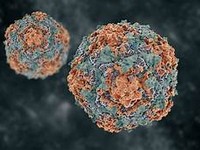
PROSTATE PROBLEMS
FOODS THAT HEAL
FOODS TO LIMIT
WHO’S AFFECTED
The prostate, a walnut-size gland located just below the bladder, is the source of many male urinary problems, including cancer, benign enlargement, and inflammation (prostatitis)
Urinary tract infections, lifestyle habits, and a high-fat diet seem to predispose a man to some of these problems
As men age, the prostate tends to enlarge, a condition called benign prostatic hypertrophy (BPH)
About one-third of all men over 50 experience this noncancerous enlargement that can cause severe obstruction of urinary flow
Prostate cancer is the second most common type of cancer among American men, and more than 28,000 American men die of the ailment per year
If treated in an early stage, it is highly curable
Nutrition Connection
Follow these guidelines for better prostate health: Mix in foods with lycopeneA recent study of nearly 48,000 men found that this substance—found in such foods as tomatoes, red grapefruit, and watermelon—appears to reduce the risk of prostate cancer
Cooking appears to release more of the lycopene in tomatoes, so tomato-based pasta sauces and soups may be especially beneficial
Lycopene is fat soluble so is better absorbed when eaten with a little fat
Go nuts
The selenium in nuts may protect against prostate cancer
This antioxidant is found in nuts, especially Brazil nuts, seafood, some meats, fish, wheat bran, wheat germ, oats, and brown rice
Seek out soy
Soy products can help prevent prostate enlargement, may help protect against prostate cancer, and may slow tumor growth
This effect is attributed to isoflavones, plant chemicals that help lower dihydrotestosterone (DHT), a male hormone that stimulates the overgrowth of prostate tissue
Be oily
A diet that is high in saturated animal fats has been linked to an increased incidence of prostate cancer
However, oily fish such as salmon, trout, and Artic char are high in omega-3 fat’s which seem to reduce the risk of prostate cancer
Dish out plenty of veggies
Vegetables from the cruciferous family such as broccoli, cabbage, and cauliflower contain isothiocyanates, which are phytochemicals that appear to protect against cancer
Eat whole grains
Whole grains offer fiber, selenium, vitamin E, and phytochemicals, all of which play a role in the prevention of cancer
Drink plenty of fluids
Anyone with an enlarged prostate should drink plenty of water and other nonalcoholic fluids and reduce the intake of caffeine
Beyond the Diet
Some nondiet changes can help reduce the risk of prostate cancer or may slow its progressThey are: Reduce zinc intake
According to research led by the National Institutes of Health, zinc takers had twice the risk of prostate cancer
Exercise
Get 30 minutes of moderate aerobic activity six days a week
Reduce stress
Spend a total of about an hour a day practicing stress-reduction techniques, such as deep breathing, guided imagery, and stretching
You don’t have to get all zen in one sitting
Ten minutes here and there works
Importance of well balance diet




